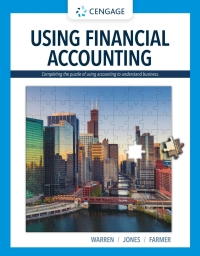


Entries for Installment Note Transactions On January 1, Year 1, Bryson Company obtained a $12,000, four-year, 9% installment note from Campbell Bank. The note requires annual payments of $3,704, beginning on December 31, Year 1. a. Prepare an amortization table for this installment note, similar to the one presented in Exhibit 4. Note: Round the computation of the interest expense to the nearest whole dollar. Enter all amounts as positive numbers. In Year 4, round the amount in the Decrease in Notes Payable column either up or down to ensure that the Carrying Amount zeroes out. Amortization of Installment Notes Year Ending December December 31 January 1 Carrying Amount Note Payment (Cash Paid) Interest Expense (9% of January 1 Note Carrying Amount) Decrease in Notes Payable Carrying Amount 31 $ $ $ $ $ Year 1 Year 2 Year 3 Year 4 0 $ $ $ b. Journalize the entries for the issuance of the note and the four annual note payments. Note: For a compound transaction, if an amount box does not require an entry, leave it blank. For the Year 4 entry (due to rounding), adjust Notes Payable up or down to ensure that debits equal credits. Cash Year 1 Jan. 1 Notes Payable Year 1 Dec. 31 Interest Expense b. Journalize the entries for the issuance of the note and the four annual note payments. Note: For a compound transaction, if an amount box does not require an entry, leave it blank. For the Year 4 entry (due to rounding), adjust Notes Payable up or down to ensure that debits equal credits. Year 1 Jan. 1 Cash Notes Payable Year 1 Dec. 31 Interest Expense Notes Payable Cash Year 2 Dec. 31 Interest Expense Notes Payable Cash III III III III II III III III I Year 3 Dec. 31 Interest Expense Notes Payable Cash Year 4 Dec. 31 Interest Expense Notes Payable Cash c. How will the annual note payment be reported in the Year 1 income statement? Interest expense of $ would be reported on the income statement. Entries for Issuing Bonds and Amortizing Premium by Straight-Line Method Daan Corporation wholesales repair products to equipment manufacturers. On April 1, 2016, Daan Corporation issued $5,300,000 of 9-year, 6% bonds at a market (effective) interest rate of 5%, receiving cash of $5,680,363. Interest is payable semiannually on April 1 and October 1. a. Journalize the entry to record the issuance of bonds on April 1, 2016. For a compound transaction, if an amount box does not require an entry, leave it blank. Cash 5,680,363 Premium on Bonds Payable 5,300,000 Bonds Payable 380,363 b. Journalize the entry to record the first interest payment on October 1, 2016, and amortization of bond premium for six months, using the straight-line method. The bond premium amortization is combined with the semiannual interest pay ent. (Round to the nearest dollar.) For a ompound transaction, if an amount box does not require an entry, leave it blank. Interest Expense Premium on Bonds Payable Cash c. Why was the company able to issue the bonds for $5,680,363 rather than for the face amount of $5,300,000? The market rate of interest is the contract rate of interest









